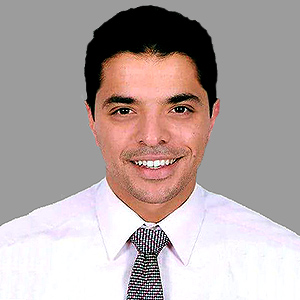

The journey from medical school to joining an internal medicine residency program is challenging. However, the journey does not stop there, and many residents will choose to pursue subspecialty training.
This poses the question: how can a medicine resident improve his or her resume to become a stronger candidate for cardiology fellowship?
I discussed this with my fellowship program director, and we wanted to highlight a few messages for improving your resume prior to fellowship:

Intern year is very busy, and the focus should be on getting comfortable in different areas of management of patients in the inpatient and outpatient arenas. However, before you realize, intern year will pass quickly and you will be starting second year with expectations to apply for fellowship within one year. Therefore, the earlier you start working on your resume the better.

Schedule your cardiology electives earlier rather than later to give you the exposure that could help consolidate or change your mind about pursuing cardiology fellowship.

Set up meetings with cardiologists in your program, or cardiologists at national/local conferences. Talk to them and understand more about the practical aspects of a cardiology career beyond the training period. These kinds of discussions are very useful in setting your mind and goals preparing for fellowship.

Scholarly activities are very efficient tools for boosting up your resume. Find yourself a research mentor who can guide you through your scholarly work.
Participating in research projects carries educational aspects, including performing and criticizing clinical studies, which I found very helpful in practicing evidence-based medicine. It gives real exposure to your research mentors, and lets them evaluate you closely.
Furthermore, mentors give a personalized perspective when they write recommendation letters and advocate for your fellowship application.

Scholarly activities can simply start by writing up interesting cases you came across as a poster for a conference, or if more interesting, draft it as a full manuscript. Submit and work on getting a poster in one of the national meetings.

Before the end of intern year, start working on a personal research project (retrospective studies are easier to accomplish in timely manner). Additionally, always offer to help and collaborate with other colleagues with common research interests.
These experiences get you familiar with scientific writings and provide exposure to different meetings and conventions. Completing research projects up to the publication stages is important on your resume, and shows that you are an achiever.

The local ACC chapters are great venues for residents to attend. They are more focused and informative about relevant cardiology topics and it is easier to present your work there as a poster compared to national meetings.
Local chapter meetings also provide opportunities to connect and communicate with prominent cardiologists attending these meetings, which at the early time of your career is very useful.

An away rotation is a valuable experience. This becomes of higher importance for residents in programs with no cardiology fellowship programs. Having a few weeks rotation in a cardiac center of excellence allows you to witness various advanced cardiology practices and interventions.
It also allows you to work with pioneers who could inspire your career significantly and write you valuable recommendation letters, as well as increases your competitiveness as a fellowship candidate.

This article was authored by Ayman Elbadawi, MD, cardiology Fellow in Training (FIT) at the University of Texas Medical Branch in Galveston, TX.